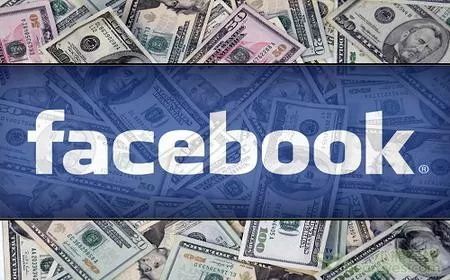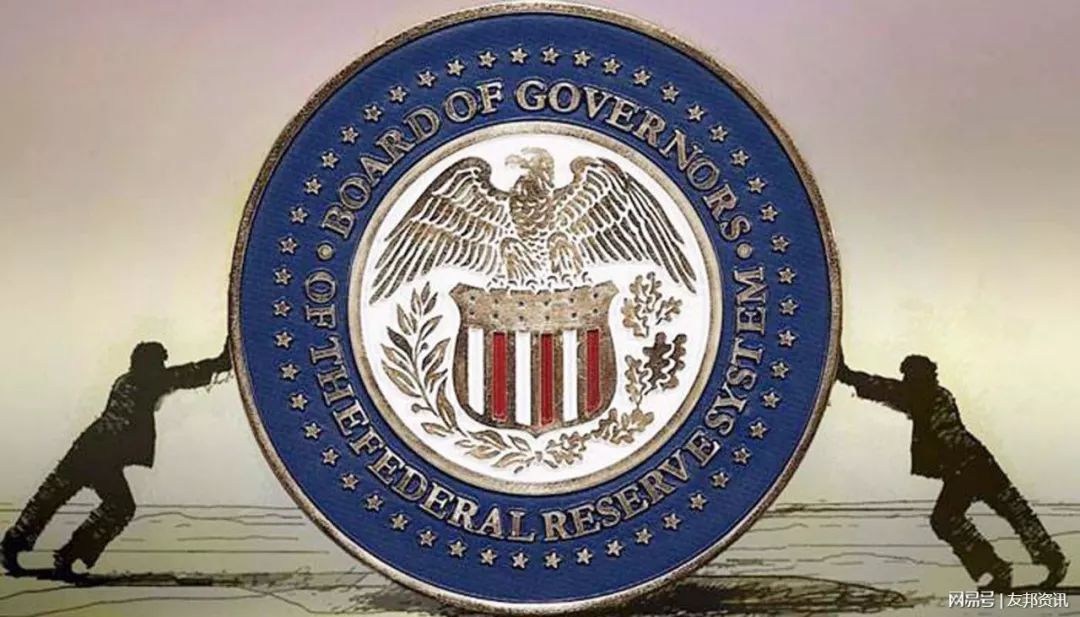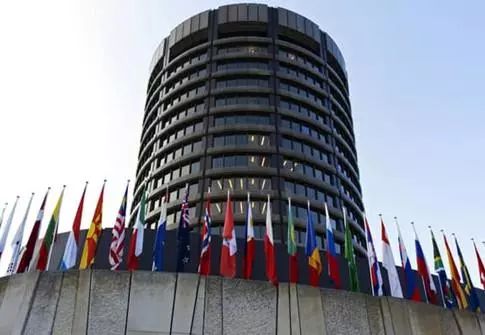Why Libra may be "in the womb": talk about the trend of digital currency, the rise and fall of the monetary system and the evolution of the international monetary system
Author: Shanghai Development Research Foundation deputy president and secretary general Joey De Source:探索与争鸣
This article will be published in the 11th issue of "Exploration and Controversy" in 2019, the content of which is subject to the official issue.

One
Libra's white paper was announced on June 18. I didn't agree with it at the time and thought it had a big problem and might not be approved by the regulatory authorities. After a few months now, everyone can calm down and analyze it comprehensively and objectively. Libra news came out the next day. It is said that Ma Huateng said a word on WeChat. Libra has no technical problems, mainly because of regulatory problems. I personally think that although this sentence is very simple, it reflects his many experiences and I think it is very correct. Many people's analysis of Libra basically implies an assumption that it can pass the review of the regulatory authorities. And I think that it may not be able to pass such a review.
- Hangzhou Financial Office hosted the blockchain training matchmaking meeting, Babbitt Ma Qianli 45 minutes to explain what is the blockchain
- 2019 Deloitte Global Blockchain Survey: There is no common model for blockchain industry applications, depending on industry characteristics
- "Dark net" black trading eco exposure: buying and selling personal information, drugs, using bitcoin transactions, multiple large cases were investigated
So why is Libra likely to be "in the womb?" The US Congress held a hearing on July 16 and 17. Libra leader Marcus participated in the meeting. Members of the House asked a lot of questions. The main contents include three aspects: First, Libra has great flaws in digital protection and personal privacy. Second, there are no adequate measures for anti-money laundering and anti-terrorism financing. Third, Libra may have an impact on financial stability in the financial system. These three can be divided into two categories, that is, Libra has two major categories of hidden dangers: one aspect, its own possible risks; on the other hand, it may pose risks to the external and global financial system. As far as the former is concerned, it is mainly because of hidden dangers in data protection privacy and anti-money laundering. There are two reasons for this: First, there are big problems with Facebook's data privacy. 50 million personal data has been leaked and just fined $5 billion. Second, Libra's current program has a major flaw in the structure of the problem. To avoid problems with the data, the Libra Association has the following 100 nodes responsible for data and privacy protection. It is irresponsible to push such a major responsibility to the following nodes. If it is issued in 100 countries, it is a big problem to manage 100 nodes in 100 countries.

In addition, there are three main issues with Libra in terms of internal financial management. First, how do you manage your money after purchasing Libra? Who will host it? Is the central bank custody? Still a third party hosting? Is there a monitoring mechanism? These major issues are not clearly stated. Second, due to the funds raised, the Libra Association must have a portion of the provision. How is this reserve determined? How to calculate? This is a big problem. In addition, it does not have a mechanism to check and correct regulatory errors, and it is also a flaw. Third, it has currency mismatches and exchange rate risks. Libra is made up of a basket of currencies. In other currencies, Libra has a problem of exchange rate risk. How to prevent this risk? In summary, Libra has four major risks in addition to the privacy and data risks, plus the three risks in financial management. Although some aspects can be slowly compensated and revised in the future, the most fundamental second type of risk, that is, the impact and damage to the stability of the global financial system, cannot be compensated or modified.
two
There is a lot of controversy about whether Libra is a currency. Some people say that it is not a real currency, a token, or an asset. At least according to its intent, Libra is to be distributed and distributed globally, which will perform the four functions of currency, circulation, payment, pricing, and storage. In doing so, it actually undermines the sovereignty of issuing legal currency in various countries. According to a member of the German Monetary Board, assuming that 100 million people have exchanged their own currency for Libra, the Libra Association will be the world's largest creditor, and its assets are equivalent to the assets of all German banks. A large plate, the resulting liquidity is very large, it is impossible not to damage the power of governments to issue legal currency. At the same time, it also affects the implementation and transmission of monetary policy in various countries. The Libra Association claims that it has no intention of influencing monetary policy, which is the responsibility of central banks. But we can't just judge based on what it expresses verbally, but rather analyze whether it will affect monetary policy based on the actual consequences of the action it is taking. And the answer is yes. It has such a large liquidity, how can it not affect the implementation and transmission of monetary policy? Some people think that if Libra is released, the dollar will have the largest share of the Libra basket, which will be good for the dollar, so the US government may support it later. This is logically completely untenable.

Why do you say that? Because the US government or the Federal Reserve lost control of this part of the liquidity, it is not willing. If this inference is true, then the US should support SDR because the US dollar accounts for the majority of the SDR basket. So why does the US not support SDR now? Because it may actually weaken the dollar, the Fed will lose complete control over monetary policy. Now that the Libra Association is based in Switzerland, the United States will not tolerate this situation. In the final analysis, I think Libra, a privately controlled global currency, touches the bottom line of modern civilization. At present, the status quo of the issuance of legal currency by central banks is historically formed, and it has its objective inevitability and is an aspect of modern civilization. Although there are many problems with this monetary system, such as how currency issuance matches the development of the real economy, there are no other better alternatives.
I would like to quote Zhou Xiaochuan’s speech on July 1 this year. After telling the central bank’s goals and mission, he said that “the central bank’s personnel, organization and organization constitute support for its mission, and there are legal legislation guarantees. This is also an important product of modern civilization. At least for now, this is far from the goals and mission of commercial organizations. It is hard to believe that the impact of this civilization can have good results." This passage is in keeping with his usual style. It is more euphemistic, but the meaning is very clear, that is to say, the issuance of sovereign currency by central banks of various countries is now an integral part of modern civilization, and there is no good result of not seeing other private commercial institutions replacing it. I personally think that he has reached the essence of the problem. This is also the most fundamental reason why it does not pass the review of the regulatory body.
three
The issuance of sovereign currency or credit currency by central banks is a feature of the credit era. When people talk about money, they tend to focus on the material form of money, from shells to precious metals to banknotes, or to the function of money, but they don't pay attention to the relationship between money and society, or the system of money, which is precisely a comprehensive understanding of money. Important links, but now they are often overlooked by everyone. However, most of Libra's current articles and discussions are only interpreted from a technical perspective without taking into account the factors of the monetary system. The relationship between money and society can be roughly divided into three categories:
In the first category, the currency itself has intrinsic value, which is a system. The second category is the currency in which the precious metals and reserve currencies are the standard. The form of this currency is not important, it can be a banknote, it can be a billing currency, or it can be electronic money. The third category, since the collapse of the Bretton Woods system, is the era of credit currencies. The material form and physical form of the credit currency are not important, and may be banknotes or billing currencies. Sovereign currency or legal currency is supported by the government's credit, and it has no intrinsic value and no guarantee. Whether Alipay or Tenpay is not changing the characteristics of the credit era, they are a means of payment for legal currency. This is very important. The emergence of the credit currency era is not accidental, but gradually formed. Everyone knows that the Shanxi ticket number played a big role in history, but it declined later. Why is the Shanxi ticket number going down? Economically speaking, the gradual independence of Outer Mongolia has impacted the economic base of Shanxi businessmen. In 1905, the Qing government established the Central Bank. At the beginning, it was called the Ministry of Finance, which was jointly organized by officials and businessmen and opened in Beijing. Later, in 1908, the Hubu Bank was renamed Daqing Bank. After the Revolution of 1911, it was renamed Bank of China. The government's credit is stronger than private credit, and the Shanxi ticket has to withdraw from the historical stage.

The United States also has similar entanglements between government credit and private credit. Before the establishment of the Federal Reserve in 1913, the United States tossed for almost 100 years, established the Central Bank, and then withdrew, and then established. It is also because of this kind of anti-repeated toss, people's understanding of the monetary system is deepening. So now, the central bank has become the most important financial institution or financial infrastructure in the era of currency credit. Despite the central bank's many problems, this is for sure, but can you be convinced by a Libra, or any other thing to replace it? ! I think this is the biggest challenge.

Mondale's economics winner, Mundell, said in a pioneering paper on "the optimal currency zone" in 1961, "In the real world, money is mainly a manifestation of national sovereignty, so the actual currency restructuring is only accompanied. It is feasible to make profound political changes. Therefore, progress on the technical level alone is not enough to solve the problem of the monetary system. The concept of "technical supremacy" that technology can solve all problems is one-sided. Historically, changes in the monetary system (not the physical form of money) were first driven by economic growth. The rapid development of the economy has made the precious metal currency a shackle, making the guarantee of the issuance of banknotes cumbersome. The intricacies of the modern economy not only make finance the core of the economy, but also make its shape more complicated. Interest groups representing different economic sectors and different financial formats inevitably form a political game, which ultimately leads to changes in the monetary system. Of course, although I criticized Libra and thought it might not be born, I also thought that the emergence of Libra gave us a lot of new inspiration.
First, Libra has drawn global attention to digital currencies. Recently, the Governor of the Bank of England, Carney, said that the hegemony of the dollar is not good, and the hegemony of other single currencies is not good. He proposed to build a global digital currency SHC called the comprehensive hegemonic currency. The specific details are not clear. The general meaning is that after each central bank engages in digital currency, it may be possible to engage in a global digital currency. Second, Facebook is very imaginative in Libra. It also knows how to make full use of its own brand, and thinks that many other brands such as Uber and VISA cards are included. In this case, its traffic is very large. If you want to engage in a global digital currency in the future, this is very worthwhile to learn from, that is, to expand the traffic portal. Third, it captures a prominent problem in the current global financial system, that is, cross-border payment costs are very high. Some people say that the cost of cross-border payment is 5%, and some say 10%. This is also the need to engage in global digital currency in the future.
four
So, how can the global monetary system in this context evolve in the future? I have said a word that may be more absolute:
"Without a central bank, there can be no real, legally significant global currency. To have a global central bank, there must be a global central government. Without a global central government, there can be no real central government. bank."
Someone may question the dollar? The dollar is the de facto global reserve currency, but it is not legally and can be changed. From this perspective, I think the euro is an interesting experiment. Although there is no real central government in Europe, it has a council and a parliament. Especially in Europe, there is a very strong political desire to be unwilling to have another war. During the First and Second World Wars, so many people died in Europe. European politicians felt that they must unite to avoid war and have a place in the world political landscape. Therefore, the first unified currency, because the global financial crisis triggered the European debt crisis, it must engage in banking alliances, and fiscal unity is also doing. Whether it can continue to live depends on how it will go in the future. This has great implications for us in analyzing the future evolution of the global financial system.
The evolution of the physical form of money depends on technological advances. From precious metals to banknotes, there is no paper money without papermaking technology. But the monetary system is not driven by pure technology. Has the steam engine caused the gold standard? the answer is negative. In 1971, Nixon announced that it would no longer promise to exchange dollars for gold, not for technical reasons. So why can't the gold standard retreat? Because the speed of global economic development far exceeds the growth rate of gold production. How will the future global monetary system change? It must not depend solely on volume, but on the pattern. The reason why the US dollar gained its dominant position in the 1970s was because the US economy was large and monopolized the global economic gimmick; economic dominance led to diplomatic and military hegemony; all of this was closely related to the hegemony of the dollar. related. As long as the United States is economically bossy in the future, the status quo of dollar hegemony is basically difficult to change. Unless there is a major change in the global economic structure in the future, forming a three-pronged situation in the United States, China and Europe, the global monetary system at that time may undergo major changes.
I think this situation is entirely possible in a few decades. The total economic output of China surpasses the United States after 15 to 20 years, and there should be no major problems. Our challenge is how to maintain China's economic growth with high quality. If the economy is kept viable, how to make the economic growth increase into an increase in soft power. The euro zone's total economic output is already the world's number one, but such a first has not yet improved Europe's position in the global geopolitical landscape, nor has it enabled the euro to be widely used outside Europe to solve these problems. The challenge facing Europe. If China and Europe can better solve the problems they face, there are several possibilities for changes in the global monetary system. First, with the substantial progress in the internationalization of the renminbi and the renminbi becoming a real reserve currency, the euro will strengthen its position. The global monetary system may have a diversified reserve currency system. The US dollar, the renminbi and the euro are equally divided to provide global liquidity. Support the ball currency system.
The second possibility depends on the progress of the issuance of digital currency by central banks. If it goes well, it is possible to form a global sovereign digital currency based on this, similar to SHC, but completely different from the global private digital currency like Libra.
Third, promote the widespread use of SDR in the form of digital currency. For various reasons, SDR is currently not widely used, but it is an internationally recognized reserve asset and has the legal basis for expanding into a global sovereign currency. Fourth, there may be some kind of emergencies that will create a strong consensus on the whole world and achieve a motive similar to the creation of the euro. In this way, a new international financial organization may be established. Although it is not a global central bank, it can play a role similar to the IMF. The IMF is currently targeting short-term behavior of the balance of payments. If another international financial organization is created, the exchange rate is coordinated, etc., then the global currency may be promoted at that time.
We will continue to update Blocking; if you have any questions or suggestions, please contact us!
Was this article helpful?
93 out of 132 found this helpful
Related articles
- Bitski completed $1.81 million in seed round financing and won the favor of three well-known institutions such as Coinbase, Galaxy Digital and Winklevoss
- Ling listened to Wu Xiaobo channel, and found these 5 opportunities in 3000 blockchain articles.
- Financial observation: The United States is advancing the delay of the digital currency, causing industry concerns
- Blockchain analysis company Messari completed $4 million in financing, Coinbase, distributed capital, etc.
- HSBC joins Singapore Exchange and Temasek to issue blockchain-based fixed income securities
- US CFTC Chairman: After Ethereum 2.0 to PoS, ETH may be considered "securities"
- Thinking after the Wuzhen Conference: The future ten years of the blockchain in my eyes





